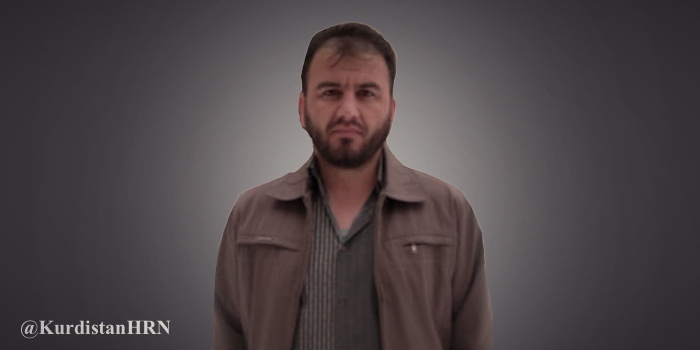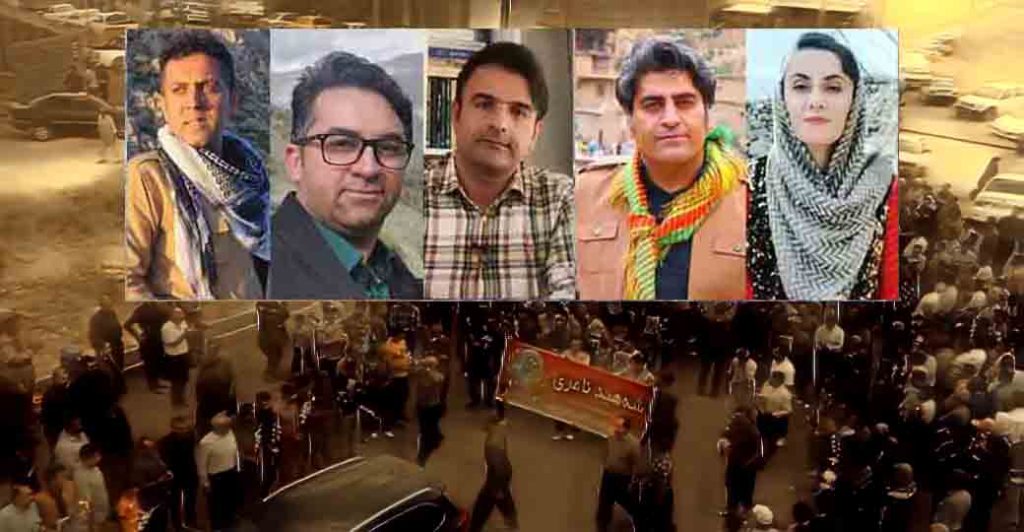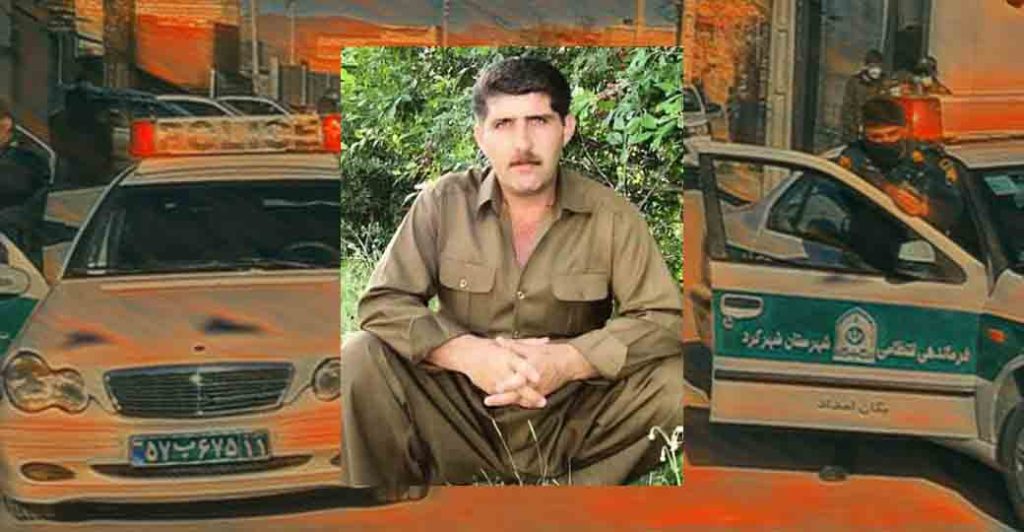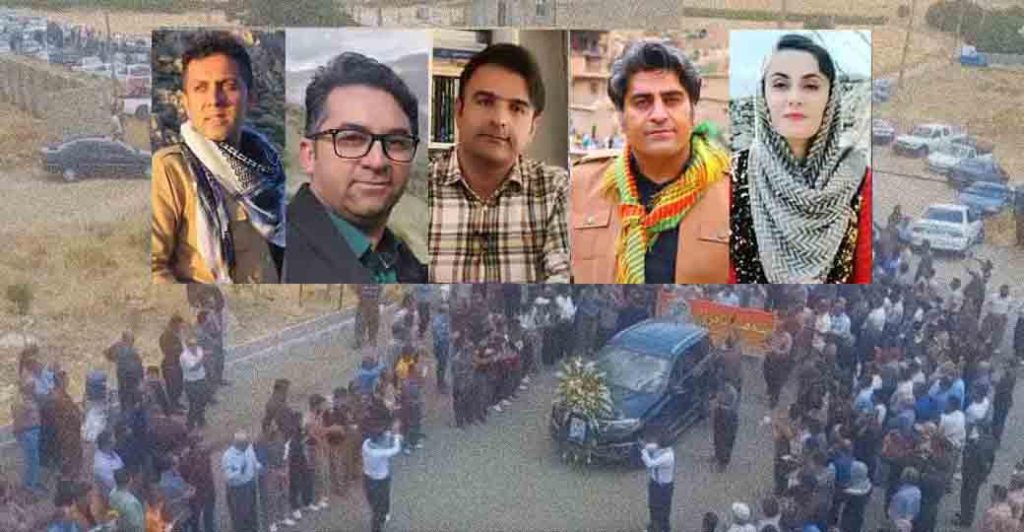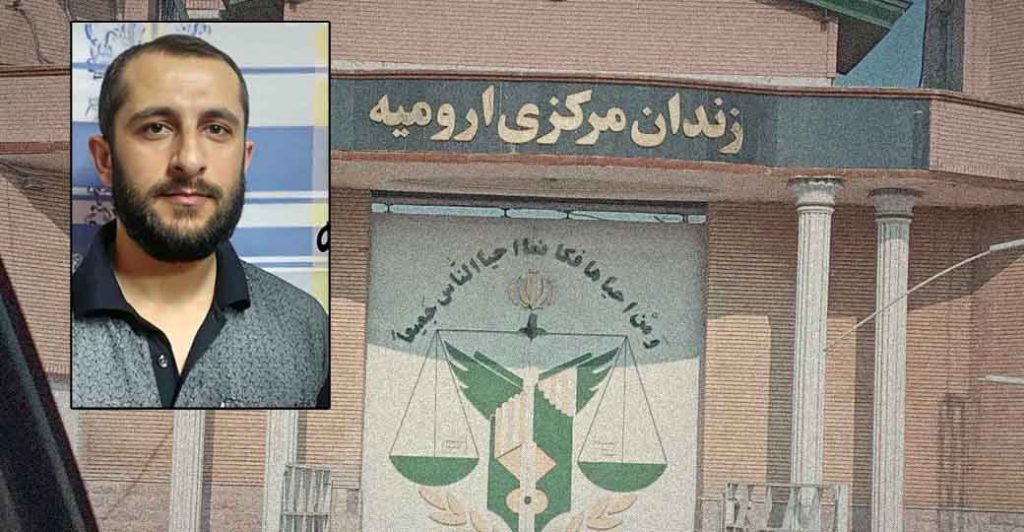Kurdish prisoner of conscience Davoud Abdollahi was executed today after 14 years in Ghezel Hesar Prison in Karaj, Alborz Province.
He went on hunger strike after being transferred to solitary confinement for execution on 26 December and was executed on the seventh day of his hunger strike, the Kurdistan Human Rights Network (KHRN) has learned.
Abdollahi had been sentenced to death along with six others – Anvar Khezri, Kamran Sheikheh, Khosrow Besharat, Farhad Salimi, Ghassem Abasteh and Ayoub Karimi – on charges of “spreading corruption on earth” (efsad-e fel arz).
The Ghezel Hesar prison authorities had previously executed Abasteh and Karimi on 5 and 29 November respectively.
Abdollahi’s body has been returned to his family and is due to be buried today in Mahabad, West Azerbaijan Province.
The execution of the prisoners of conscience raises concerns for the remaining four prisoners who have also been sentenced to death in connection with the same case.
Following the executions of Abasteh and Karimi, the KHRN warned of the risk of execution for the remaining five prisoners of conscience, stating that the prisoners’ cases had been sent to the prison authorities for execution and that the security services had urged the officials of Ghezel Hesar prison to carry out the death sentences of all five political prisoners as soon as possible.
In 2019, the Supreme Court upheld the death sentences of these prisoners of conscience and later on 9 September 2020, Branch 38 of the Supreme Court rejected the plea for retrial submitted by these prisoners.
Karimi and his six co-defendants were arrested by security forces between December 2009 and January 2010 in Saqqez, Kurdistan Province, and Mahabad, West Azerbaijan Province.
Subsequently, they were taken to the Ministry of Intelligence detention centre in Orumiyeh, West Azerbaijan Province, where they were subjected to both physical and psychological torture for several months to extract forced “confessions”.
After the interrogation phase in Orumiyeh, the seven prisoners of conscience were moved to Evin Prison in Tehran, where they endured six months of solitary confinement and further questioning in Wards 240 and 209.
They were later transferred to Rajai Shahr Prison in Karaj on 20 March 2012.
In March 2016, the trial of these seven prisoners on charges such as “acting against national security”, “propaganda against the state”, “membership in Salafi groups”, and “spreading corruption on earth” was held in Branch 28 of the Islamic Revolutionary Court in Tehran, presided over by Judge Moghiseh.
On 25 May 2016, they were officially informed of the death sentence. After the lawyer objected to the issued verdict, the case was referred to the Supreme Court. In Early 2017, this verdict was overturned.
After the referral of this case to Branch 15 of the Islamic Revolutionary Court in Tehran, presided over by Judge Salavati, in June 2018, these seven prisoners were again sentenced to death on charges of “spreading corruption on earth.”
Following the lawyer’s objection to the issued verdict, the case was referred to Branch 41 of the Supreme Court, and in February 2020, this verdict was upheld.
In August of the current year, the seven prisoners were transferred to Ghezel Hesar Prison after the closure and evacuation of Rajai Shahr Prison in Karaj.
Additionally, last week the authorities at Orumiyeh Central Prison executed three Kurdish men and an Azerbaijani-Turkic woman on charges of “participation in intelligence cooperation and espionage for Israel”.
The names of the three men were Vafa Hanareh, Aram Omari Berdiani and Rahman Parhazou, and the woman was Nasim Namazi.

